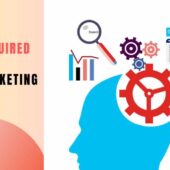Why website coding is important for Digital Marketing career?
Website Coding? a big question mark arises on every SEO’s mind. should SEO experts know to code? People sweetly say NO NEED. But there are so many benefits if SEO experts knew website coding. Let us discuss a few here.
Most of the people hate coding, not because of its dull graphical appearance, for its tangled structure. When people choose a digital marketing career, they think that coding is not a part of their work.
To attain the highest position in digital marketing career one should have knowledge on website coding.
Depending on others’ work to get success in our work-life will keep our progress slow.
An SEO expert no needs to know every bit of programming, but they need to have a little understanding of programming elements to succeed in an SEO career.
We can break SEO into two parts.
- Off-Page SEO
- On-Page SEO
OFF-PAGE SEO:
When it comes to off-page SEO, it is totally about how well we optimize our content off the side of our website.
- Like link building,
- social bookmarking,
- blogs commenting,
- Article submission etc,
ON-PAGE SEO:
On-page SEO is totally about a web page optimization on our own website. Meta Tags plays a major role in building up a web page SEO centric.
Tags like
- Meta title.
- Meta keyword.
- Meta Description.
- Alt tags.
- Header tags.
- Canonical tag.
- Anchor text, and
- Image tags have their own preferences in the Google rank factor.
STRUCTURE DATA CODE:
Structured data is an organized format of providing data about a page, combine chunks of data: for example a recipe page what are the ingredients, who is the chef, at what time, and so on. The below image is the example of structured data given by Google. It is written on JSON-LD CODE.
These three types of schema markup formats:
- JSON-LD.
- MICRODATA.
- RDFa.

With the help of CMS(Content Management System)like WordPress, Joomla and so on people are easily implementing On-page factors. When it comes to non-CMS websites, it is necessary to learn to code to perform optimization.
Why should you know coding to perform 301 redirects:
Performing redirect on a CMS based website is very easy, for a non-CMS website definitely needs to have knowledge of coding. From an SEO perspective we should inform the search engine that WWW and NON-WWW versions of our website URLs should be treated the same.
If we move content from one page to another within the site then definitely we should inform the search engine about the content shipment. Both these activities need to have knowledge of website coding when we don’t have CMS.
IMPROVE WEB PAGE SPEED BY CODING:
Google’s latest research result says that the chance of bounce rate increases when the page load time goes more than 3 seconds. If load time gets delayed more than 5 seconds it increases the bounce rate by 90%. Page speed more than 8 seconds affect websites’ SEO ranking.
Search engines give a better rank to a healthy website. A healthy website is a sign of great performance and better results.
There are some set of rules given by Google to increase page speed.
Minify Resources (HTML,CSS & JAVASCRIPT):
When it comes to page speed, Page size also comes into consideration. Unnecessary code leads slower page load.
Optimize CSS:
The browser has to process all the style and layout information of the current page before it project to the user. The browser will block projecting the content to the user until external style sheets are downloaded and processed, which required many round trips to do the process. It delays the time of the page loading speed. Learning CSS coding for SEO experts saves their time and they can optimize themselves instead of waiting for the developer.
Below is the example of Google page insights suggestion.

Optimize images:
Images took a lot of time to load, it will impact user experience badly. As a result bounce rate will become very high, for that image optimization will give a boost to the page speed. Cutting down some largest bytes of image saves time and improve performance.
Below is the example of Google page insights suggestion.

AMP WITH HTML CODE:
Accelerated mobile pages are an open-source library project backed by Google to improve the page loading speed of mobile devices. It is an HTML page designed to load the page smoothly and instantly. AMP works in a similar way as a general webpage, but AMP consists of AMP HTML, AMP JS library, and the AMP cache. When a page is not optimized with mobile-friendliness, the risk of an increased bounce rate is high. As per research statics collected by Google concluded. They found that 70% of the pages they analyzed took nearly 7 seconds to display on the screen.

The end product of AMP drastically improves the performance of mobile websites on the internet. AMP is not a different technique it consists of normal HTML with few restrictions and specialized tags. AMP JS works to make sure that the required content should be load quickly. So that users can see their preferred content instantly without any delay.
Use of HTML for SEO:
HyperText Markup Language is a basic coding language to build a website page. When working on a website, one should be familiar with HTML basics. As mentioned above search engine will pick a few HTML elements as rank factors.
META TITLE:
Meta title tag is the most important element which signals the search engine about the page. Giving the same title so many pages make Google confuse and it will affect the SEO progress of our website. Be cautious when giving SEO titles to a web page.
META DESCRIPTION:
Meta description tag is not considered to be a rank factor technically, but a meta description containing meta keywords may catch users attention and help to get additional clicks to the website.

META KEYWORD TAG:
The meta keyword tag is the focused keyword which our site to be shown on top of SERPs. Climbing to the top of the SERPs page is the ultimate goal of a digital marketing implementation on the website.
HEADER TAG:
The header tag is the main title of a post. It navigates to the content. Using of H1 tag is necessary for a webpage. Keyword usage in header tag help SEO ranking.
ALT TEXT (IMAGE ALT ATTRIBUTE):
Googlebot cannot read images, while you want to describe the image this tag makes the search engines understand what the image is about.
IMAGE TITLE:
This is an attribute that provides additional information about the image. When an image is not loaded due to the poor internet connection, image title helps the user to understand what image is about.
ROBOTS META TAG:
The robots meta tag is page-specific approach how an individual page should be indexed and served to users in search results. The robot tag should be placed on the section of the HTML code.
Example of Robot tag:
<META NAME=”ROBOTS” CONTENT=”NOINDEX, FOLLOW”>
<META NAME=”ROBOTS” CONTENT=”INDEX, NOFOLLOW”>
<META NAME=”ROBOTS” CONTENT=”NOINDEX, NOFOLLOW”>
Conclusion:
Digital Marketing is the Future. SEO is very important in today’s digital age. Sometimes, it is very difficult to control what Google does, but you can intensify your website traffic and achieve the best possible ranking in search results. This blog helps you in understanding how you should utilize SEO practice by spending proper time in creating codes and tags to achieve higher rankings in search results. Learn SEO Training Course to enhance your overall SEO skills and build a rewarding career in SEO




